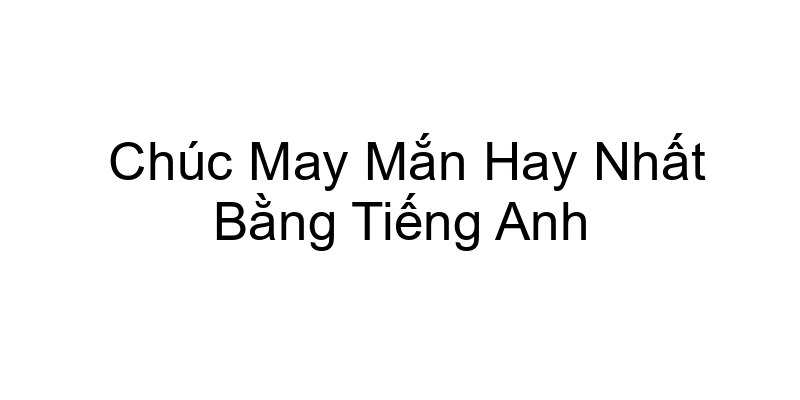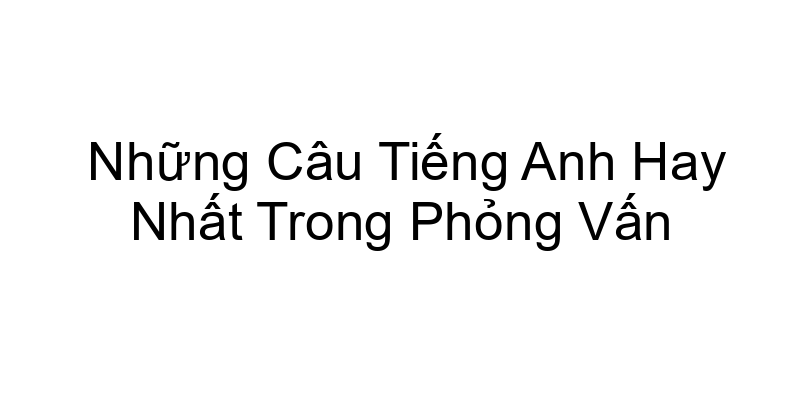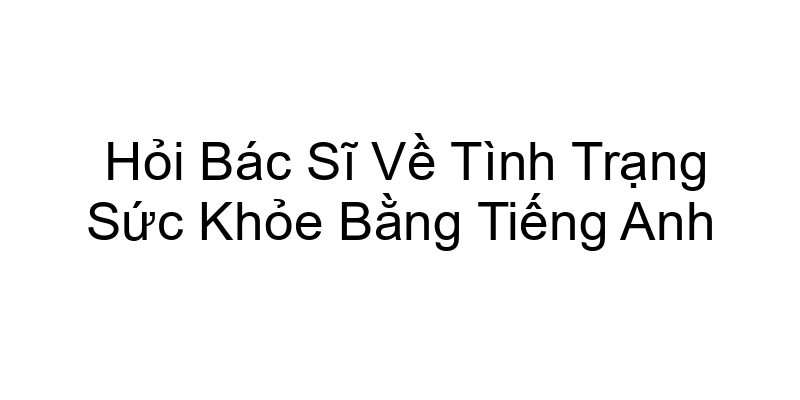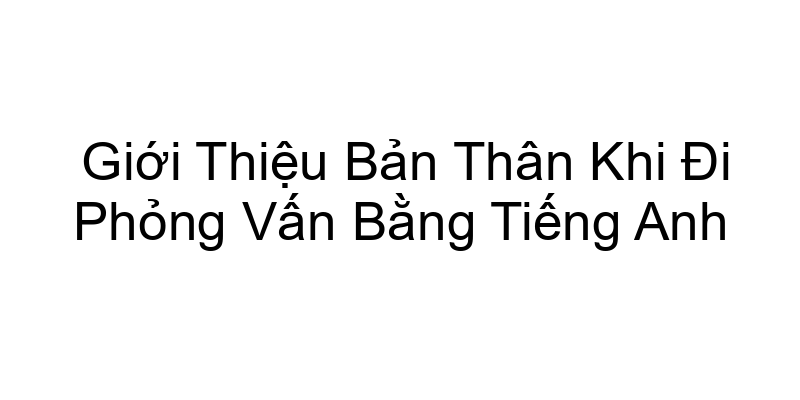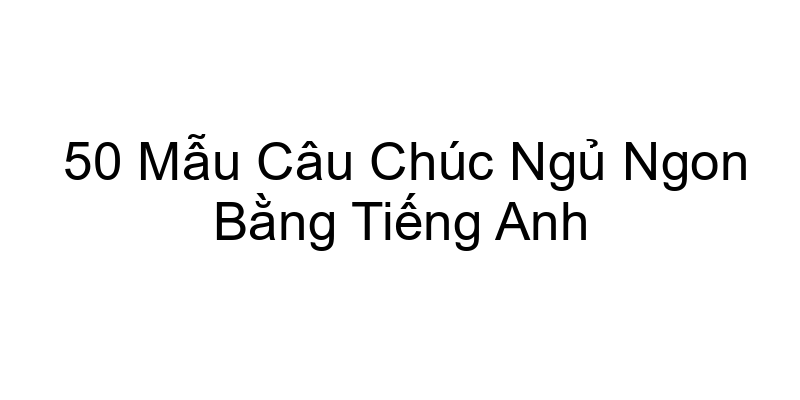Chúc May Mắn Hay Nhất Bằng Tiếng Anh
When it comes to conveying good wishes, the phrase “Chúc May Mắn” in Vietnamese translates to “Good Luck!” in English. This simple yet powerful expression carries a wealth of meaning and emotion, as it inspires hope and positivity in the hearts of those who receive it. In this article, we will explore various ways to say “good luck” in English, along with examples, cultural nuances, and the significance of wishing someone good fortune in both personal and professional contexts.
Common Phrases to Wish Good Luck
The English language offers a variety of phrases to wish someone good luck. Here are some of the most commonly used expressions:
- Good luck!
- Best of luck!
- Wishing you all the best!
- Break a leg!
- Go for it!
- Fingers crossed!
- Knock them dead!
- Cheers to your success!
Exploring Each Phrase
Good Luck!
This is the most straightforward and widely recognized way to wish someone luck. It can be used in any situation, from academics to sports and career pursuits. Its simplicity makes it a versatile choice.
Best of Luck!
Offering “best of luck” conveys a warm sentiment and implies a deeper level of support. It is often used for significant events like job interviews, exams, or performances.
Wishing You All the Best!
This phrase can be used in both formal and informal contexts. It is a lovely expression that shows concern and good wishes for a person’s overall success.
Break a Leg!
Although it sounds contradictory, “break a leg” is a traditional idiom in the performing arts. It is meant to wish actors and performers good fortune before a show. The origins of this phrase lie in superstition, where wishing someone “good luck” is believed to attract bad luck instead.
Go for It!
This expression conveys encouragement and motivation. It is often used to inspire someone to take action or pursue their goals with confidence.
Fingers Crossed!
This phrase expresses hope that something will turn out well. It is often accompanied by a gesture of crossing one’s fingers, symbolizing the act of hoping for a favorable outcome.
Knock Them Dead!
A more casual and energetic way to wish someone good luck, this phrase suggests that the person should perform exceptionally well, often used in competitive settings.
Cheers to Your Success!
This phrase is often used in a celebratory context, conveying good wishes with a positive tone and implying that you are looking forward to the person’s achievements.
Wishing Luck in Different Cultures
Understanding how different cultures express good luck can add depth to your appreciation of these expressions. Each culture has its unique way of wishing others prosperity and success.
Western Culture
In many Western cultures, phrases like “good luck” and “crossing fingers” are common. Additionally, superstitions play a significant role in conveying good fortune. For instance, carrying a rabbit’s foot or wishing on a star are popular practices that people believe will attract luck.
Asian Cultures
In various Asian cultures, including Vietnamese, luck is often tied to auspicious dates or symbols. For example, the color red is associated with good fortune in Chinese culture, leading to the tradition of giving red envelopes filled with money during celebrations. Wishing someone “good luck” is often accompanied by blessings for health and prosperity.
Latin American Cultures
In Latin America, the expression “buena suerte” is commonly used. Similar to many cultures, there are traditional practices that accompany luck, such as throwing coins into a fountain or making wishes during significant celebrations.
The Importance of Wishing Good Luck
The act of wishing someone good luck goes beyond mere words. It signifies support, encouragement, and goodwill, creating a sense of community and connection among individuals.
Encouragement and Emotional Support
When you wish someone good luck, you show that you care about their well-being. It can boost their confidence and motivate them to perform better. A supportive phrase can make a significant difference, particularly in high-pressure situations like interviews or performances.
Building Relationships
Wishing good luck is a universal gesture that bridges gaps between people. It fosters a sense of camaraderie and strengthens relationships, whether personal or professional. Friends, family, and colleagues can create bonds by sharing positive sentiments.
Cultural Exchange and Understanding
By learning how different cultures express good luck, we promote cultural understanding and appreciation. It allows us to connect with others on a deeper level and can enhance our communication skills.
Creative Ways to Wish Good Luck
To add a personal touch to your good luck wishes, consider using creativity. Here are some imaginative ways to express your sentiments:
Personalized Messages
Craft a heartfelt note or message tailored to the individual and their specific situation. This shows thoughtfulness and effort, making your luck wish more impactful.
Gifts and Tokens
Consider giving small gifts that symbolize good luck, such as a lucky charm, a horseshoe, or a four-leaf clover. These tangible tokens can serve as reminders of your supportive wishes.
Themed Cards
Create or purchase greeting cards with inspirational quotes or messages about good fortune. Cards can be shared for various occasions, such as graduations, job searches, or new ventures.
Conclusion
In every culture and language, the act of wishing good luck remains a cherished practice that brings people together. By understanding the nuances of good luck expressions in English and their cultural significance, we can enhance our communication, foster strong relationships, and spread positivity in our communities. Whether it is through simple phrases, creative messages, or acts of kindness, wishing someone good luck underscores our shared humanity and the universal desire for success and happiness.
